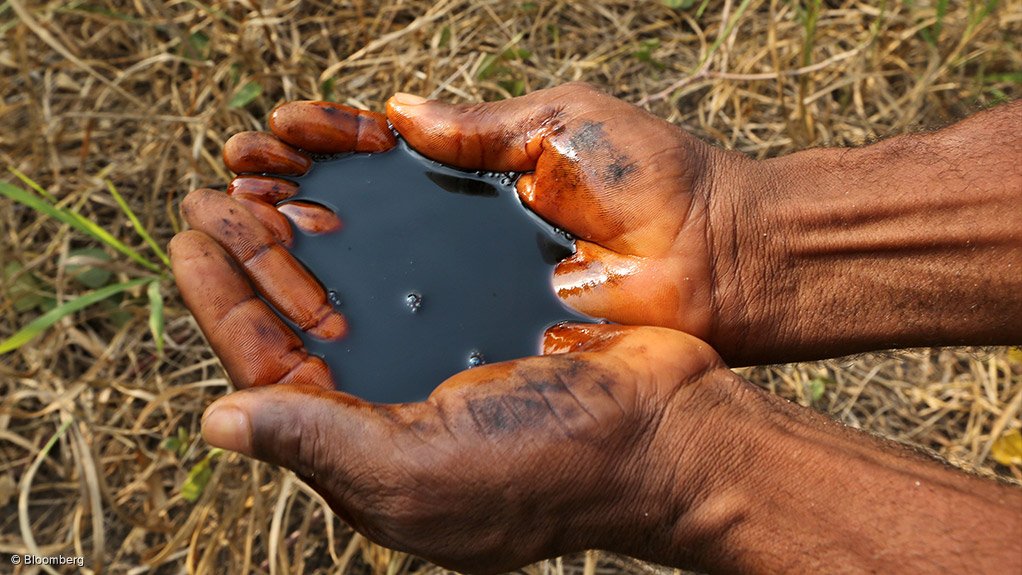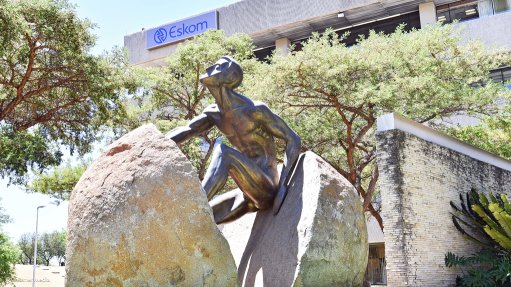Unctad says commodity-dependent countries are missing out on fiscal benefits of value addition
While commodities are a vital engine for global trade, it is value addition that holds the key to more diverse and resilient economies, says United Nations Trade and Development (Unctad).
The share of commodity exports in global trade (in value terms) only decreased slightly over the past decade from 35.5% in 2014 to 32.7% in 2023, with merchandised trade making up the balance.
Over the same time, the value of world trade in goods went up 25.6%, while commodity trade expanded relatively slowly at just 15.5%.
The shift underscores that countries mainly exporting raw materials are missing out on the broader benefits of global trade, including value-added production, innovation and diversification, the intergovernmental organisation states.
Unctad says the world is still a long way away from breaking commodity dependence – a situation where a country makes more than 60% of its merchandise export earnings from commodities.
Countries’ export goods can be categorised into three main sectors: energy, mining and agriculture. However, entrenched reliance on these primary products has long been of global concern since it hinders industrial development and threatens countries’ fiscal stability when global prices go volatile.
Alarmingly, Unctad states, commodity dependence is prevalent across structurally weak and vulnerable economies, affecting more than 80% of least developed countries and landlocked developing countries and about 60% of small island developing States.
More broadly across developing countries, two-thirds of them – 95 out of 143 – remained commodity dependent during 2021 and 2023, according to the latest edition of 'The State of Commodity Dependence' report released by Unctad on July 21.
The dependence is particularly heightened in Central and Western Africa countries, most of which earned over a staggering 80% of their export revenues from primary commodities.
Similar patterns also showed up in Central Asia and South America, where resource wealth plays a central role in trade.
The report warns that, without more efforts to diversify economies and add value, countries risk squandering opportunities to translate their raw material wealth into engines of sustainable and resilient growth.
Between 2021 and 2023, Asia and Oceania maintained their position as the world’s largest source of commodity exports, comprising 37.1% of the global total. In contrast, Africa’s commodity exports were down 5.6% over the period, primarily owing to a decrease in energy products from Nigeria, Angola and Algeria, which are leading oil exporters in Africa.
As a result, Africa’s total earnings from commodity exports decreased by more than $25-billion compared with the prior decade, offsetting growth in the agriculture and mining sectors.
Energy products dominate global commodity trade, comprising 44.5% of the total value during 2021 to 2023. However, that share was significantly smaller than a decade before at 52.1%, largely owing to lower oil prices and shifting energy demand.
Agricultural commodity exports grew by 34% globally to reach $2.3-trillion in value, which came from food items.
Mining product exports increased by 33.4% in export value, averaging $1.65-trillion each year from 2021 to 2023.
Unctad finds that 99 countries across the world are commodity dependent.
Countries such as Indonesia and Guatemala have managed to reduce their commodity dependence below the 60% threshold, demonstrating that a combination of targeted policies, strategic investment and expanded market access are conducive to building more diversified and resilient economies.
Article Enquiry
Email Article
Save Article
Feedback
To advertise email advertising@creamermedia.co.za or click here
Press Office
Announcements
What's On
Subscribe to improve your user experience...
Option 1 (equivalent of R125 a month):
Receive a weekly copy of Creamer Media's Engineering News & Mining Weekly magazine
(print copy for those in South Africa and e-magazine for those outside of South Africa)
Receive daily email newsletters
Access to full search results
Access archive of magazine back copies
Access to Projects in Progress
Access to ONE Research Report of your choice in PDF format
Option 2 (equivalent of R375 a month):
All benefits from Option 1
PLUS
Access to Creamer Media's Research Channel Africa for ALL Research Reports, in PDF format, on various industrial and mining sectors
including Electricity; Water; Energy Transition; Hydrogen; Roads, Rail and Ports; Coal; Gold; Platinum; Battery Metals; etc.
Already a subscriber?
Forgotten your password?
Receive weekly copy of Creamer Media's Engineering News & Mining Weekly magazine (print copy for those in South Africa and e-magazine for those outside of South Africa)
➕
Recieve daily email newsletters
➕
Access to full search results
➕
Access archive of magazine back copies
➕
Access to Projects in Progress
➕
Access to ONE Research Report of your choice in PDF format
RESEARCH CHANNEL AFRICA
R4500 (equivalent of R375 a month)
SUBSCRIBEAll benefits from Option 1
➕
Access to Creamer Media's Research Channel Africa for ALL Research Reports on various industrial and mining sectors, in PDF format, including on:
Electricity
➕
Water
➕
Energy Transition
➕
Hydrogen
➕
Roads, Rail and Ports
➕
Coal
➕
Gold
➕
Platinum
➕
Battery Metals
➕
etc.
Receive all benefits from Option 1 or Option 2 delivered to numerous people at your company
➕
Multiple User names and Passwords for simultaneous log-ins
➕
Intranet integration access to all in your organisation





















